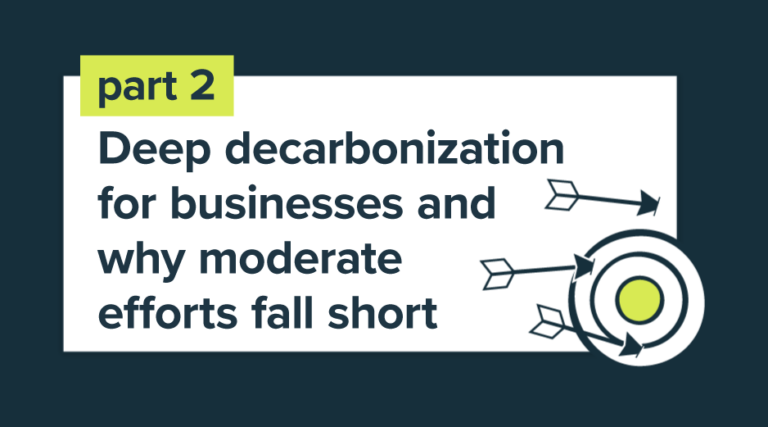As organizations continue to grapple with the far-reaching ramifications of climate change, the US Securities and Exchange Commission (SEC) has issued a landmark climate disclosure ruling, requiring publicly-traded companies to report their carbon data to investors. The ruling is a significant milestone for environmental, social, and governance (ESG) initiative proponents, as it is the first regulatory requirement for public companies to disclose their climate change-related risks and opportunities.
See the March 2022 press release here: SEC Proposes Rules to Enhance and Standardize Climate-Related Disclosures for Investors
The SEC’s new disclosure norms should shape how organizations manage and measure their sustainability practices. As part of scope 3 greenhouse gas emissions reporting, this regulation will also impact private companies that are part of upstream value-chain for the publicly-traded companies. To prepare for this ruling and ensure that businesses are fully equipped to meet the new requirements, companies should be doing the following:
Calculate their carbon emissions
With the SEC requiring companies to disclose their carbon emissions, businesses should have precise financial grade records of their greenhouse gas emissions. This will require them to measure and monitor their emissions across all their operations, including supply chains. To learn about the foundations of carbon accounting, watch our webinar, Carbon Accounting 101.
Define carbon reduction goals
Companies should identify strategies to reduce carbon emissions from their operations, and then formulate a sustainable plan to reduce their carbon footprint. The plan should include clear, actionable steps, targets, and metrics to measure progress.
Think long-term
Climate change will have long-term implications for businesses across industries. Companies should reassess their long-term goals, revise their risk-management strategies, and incorporate their findings into the new environmental and climate disclosure.
Be transparent
Companies should ensure that they maintain transparency in disclosing their carbon data in alignment with their corporate policies. Transparency builds trust with customers, investors, and other stakeholders.
Collaborate
Climate change is a global challenge that no single company can solve alone. Companies should look at forming partnerships with other businesses and key industry groups to share best practices and coordinate efforts to combat climate change.
Leverage Technology
Using spreadsheets to manage important corporate data is no longer productive. Let technology become the chief sustainability officer’s best friend to automate the data capture, analysis and reporting functions, so they can focus on their strengths to achieve decarbonization goals.
The SEC’s ruling has brought climate change to the center stage, and companies that incorporate climate risks and opportunities into their business strategies will be better positioned to adapt to the rapidly changing circumstances of our planet’s constraints and opportunities.
In conclusion, companies can use the SEC’s new guidelines to improve their sustainability practices, reduce their environmental impact, and better manage their risks over the long term. The new regulations are a wake-up call that businesses must not wait to address climate change and begin acting today.
 Best-in-class portfolio-level energy and utility bill data management and reporting.
Best-in-class portfolio-level energy and utility bill data management and reporting.
 Real-time energy and sustainability analytics for high-performance, net-zero buildings.
Real-time energy and sustainability analytics for high-performance, net-zero buildings.
 A holistic view of financial-grade scope 1, 2, and 3 carbon emissions data across your entire business.
A holistic view of financial-grade scope 1, 2, and 3 carbon emissions data across your entire business.
 Energy and sustainability benchmarking compliance software designed for utilities.
Energy and sustainability benchmarking compliance software designed for utilities.


